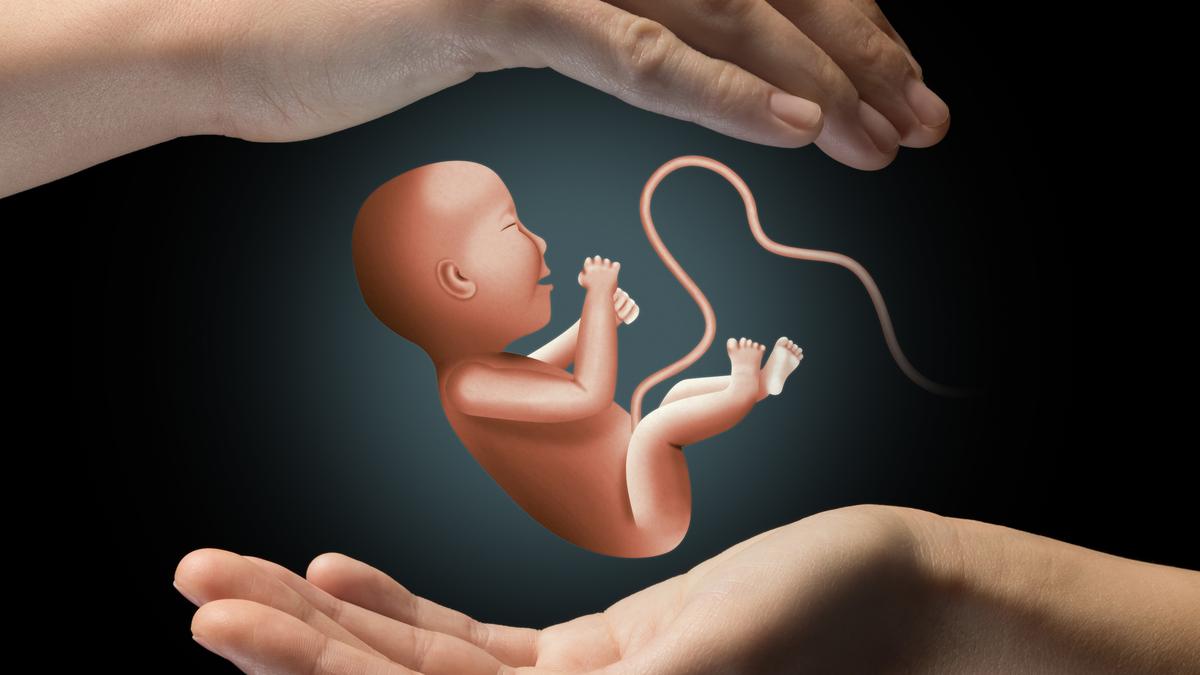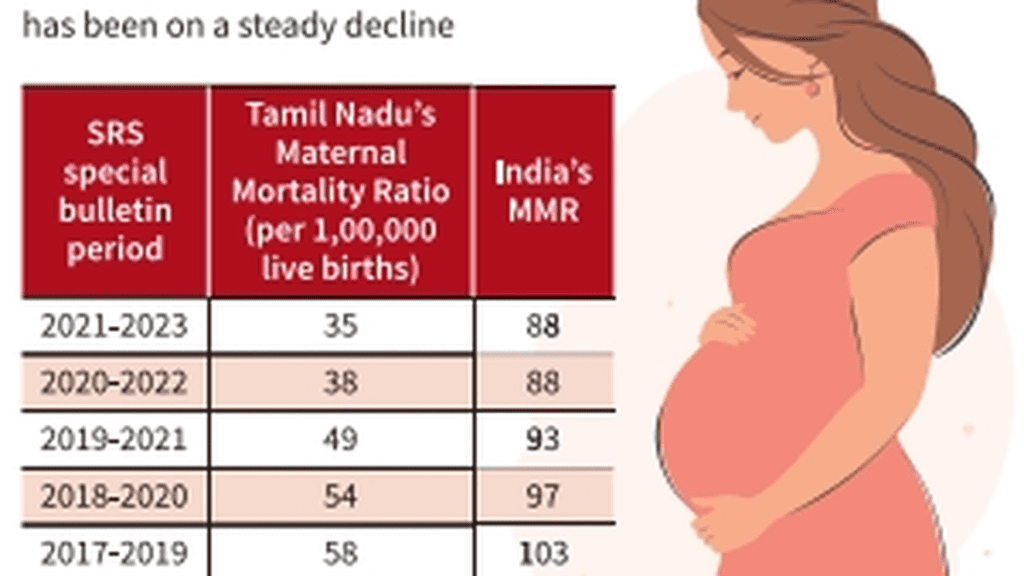As number of births fall sharply in T.N., concerns rise about elderly population Premium

As number of births fall sharply in T.N., concerns rise about elderly population Premium
Tamil Nadu’s birth rate has been on the decline. In 2024, the number of live births fell sharply to 8,42,412. In at least five years leading up to 2024, the number of live births stayed above the nine-lakh mark.
The number of live births fell by 6.6% last year as the preceding year (2023) recorded 9,02,306 births, according to data from the Directorate of Public Health and Preventive Medicine. The State’s birth rate stood at 10.9 in 2024 as against 11.7 the previous year.
TN’s Total Fertility Rate (TFR) (the average number of children born to a woman during her lifetime) stands at 1.4, which is lower than the replacement level of 2.1. While there are social and economic concerns surrounding falling birth rates, there are public health concerns that are interconnected as well.
T. S. Selvavinayagam, Director of Public Health and Preventive Medicine, said that Tamil Nadu is going along the lines of several other developed and developing countries where birth rates are declining. “There was a steep drop in the number of live births in 2024. We will wait for the annual report that will be out in a few months to get the full picture,” he said.
However, the decline in births are due to a number of reasons including good development indicators, he added.
“What is important and what is the real problem is the dependency ratio — we will have more older people who will need support. We may have social and economic challenges in the future because of a high proportion of elderly population who need to be taken care of. Not to forget the dip in the working population as well,” he said.
One immediate public health issue will be the slow-paced decline in Maternal Mortality Ratio as the denominator itself remains low, he said. Dr. Selvavinayagam added that as a policy, it was time to focus on higher order births and infertility.
Jacob John, additional vice principal (Research) and professor and head, Centre for Public Health, Christian Medical College, Vellore, said the efforts made to arrest the TFR at some point in time had been successful in States like Tamil Nadu and Kerala largely because of initiatives from the State governments and also due to economic factors. “The issue with demographic transition is that the momentum often overshoots; we have overshot where we needed to be. So, we need deliberate efforts to get to the replacement level,” he said.
Lower fertility here is not due to health-related conditions but more to do with economic and social development factors, he said, adding: “We need to take deliberate efforts; the West for instance has realised that this kind of decline in birth rates will lead to a decrease in the productive workforce and is taking efforts to address that concern.”
From the public health perspective, Dr. Jacob John said there was a need to create a balance, taking into consideration the dynamics and implications in the next 10 to 15 years. “I look at this as an opportunity, to use the slowdown in birth rate to improve the system, to work on immunisation and maternal health space,” he said.
On the impact of an ageing population, he said, “People live longer as longevity of life has gone up and health infrastructure is better. This means increased elderly dependency. Much more investments are required to take care of the health of the older population.”










